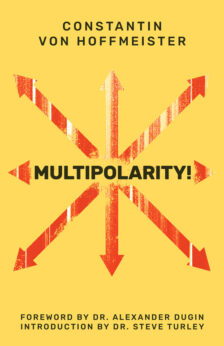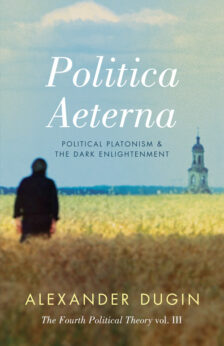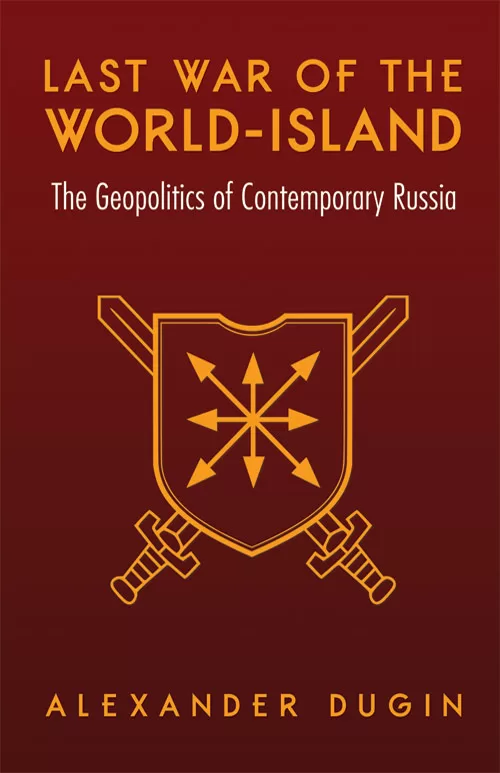Description
The Geopolitics of Contemporary Russia
Alexander Dugin traces the geopolitical development of Russia from its origins in Kievan Rus and the Russian Empire, through the peak of its global influence during the Soviet era, and finally to the current presidency of Vladimir Putin. Dugin sees Russia as the primary geopolitical pole of the land-based civilizations of the world, forever destined to be in conflict with the sea-based civilizations. At one time the pole of the seafaring civilizations was the British Empire; today it is represented by the United States and its NATO allies. Russia can only fulfill its geopolitical mission by remaining in opposition to the sea powers. Today, according to Dugin, this conflict is not only geopolitical in scope, but also ideological: Russia is the primary representative and defender of traditional values and idealism, whereas the West stands for the values of liberalism and the market-driven society. Whereas Russia began to lose sight of its mission during the 1990s and threatened to succumb to domination by the Western powers, Dugin believes that Putin has begun to correct its course and return Russia to her proper place. But the struggle is far from over: while progress has been made, Russia remains torn between its traditional nature and the temptations of globalism and Westernization, and its enemies undermine it at every turn. Dugin makes the case that it is only by remaining true to the Eurasian path that Russia can survive and flourish in any genuine sense – otherwise it will be reduced to a servile and secondary place in the world, and the forces of liberalism will dominate the world, unopposed.
Subscribe to Arktos Journal for exclusive access to articles by Alexander Dugin in English.
Table of Contents
Editor’s Note
I. Toward a Geopolitics of Russia’s Future
Theoretical Problems of the Creation of a Fully-Fledged Russian Geopolitics
Geopolitical Apperception
Heartland
Russia as a “Civilization of Land”
The Geopolitical Continuity of the Russian Federation
The Russian Federation and the Geopolitical Map of the World
II. The Geopolitics of the USSR
The Geopolitical Background of the 1917 Revolution
The Geopolitics of the Civil War
The Geopolitical Balance of Power in the Peace of Versailles
The Geopolitics and Sociology of the Early Stalin Period
The Geopolitics of the Great Patriotic War
The Geopolitical Outcomes of the Great Patriotic War
The Geopolitics of the Yalta World and the Cold War
The Yalta World after the Death of Stalin
Theories of Convergence and Globalism
The Geopolitics of Perestroika
The Geopolitical Significance of the Collapse of the USSR
III. The Geopolitics of Yeltsin’s Russia and its Sociological Significance
The Great Loss of Rome: The Vision of G. K. Chesterton
The First Stage of the Collapse: The Weakening of Soviet Influence in the Global Leftist Movement
The Second Stage of the Collapse: The End of the Warsaw Pact
The Third Stage of the Collapse: the State Committee on the State of Emergency and the End of the USSR
The Białowieża Forest
The Unipolar Moment
The Geopolitics of the Unipolar World: Center-Periphery
The Geopolitics of the Neoconservatives
The Kozyrev Doctrine
The Contours of Russia’s Collapse
The Establishment of a Russian School of Geopolitics
The Geopolitics of the Political Crises of October 1993
The Change in Yeltsin’s Views after the Conflict with Parliament
The First Chechen Campaign
The Geopolitical Outcomes of the Yeltsin Administration
IV. The Geopolitics of the 2000s: The Phenomenon of Putin
The Structure of the Poles of Force in Chechnya in 1996–1999
The Geopolitics of Islam
The Bombing of Homes in Moscow, the Incursion into Dagestan, and Putin’s Coming to Power
The Second Chechen War
The Geopolitical Significance of Putin’s Reforms
September 11th: Geopolitical Consequences and Putin’s Response
The Paris-Berlin-Moscow Axis
The Atlanticist Network of Influence in Putin’s Russia
The Post-Soviet Space: Integration
The Geopolitics of the Color Revolutions
The Munich Speech
Operation Medvedev
Saakashvili’s Assault on Tskhinvali and the Russia-Georgian War of 2008
The Reset and the Return to Atlanticism
The Eurasian Union
The Outcomes of the Geopolitics of the 2000s
V. The Point of Bifurcation in the Geopolitical History of Russia
Index












Robert Richardson (verified owner) –
My acquaintance with Arktos publishing has been life transforming. Their offerings are essential guides through the maze of modernity.
Anonymous (verified owner) –
Mark K. (verified owner) –
On my shelf waiting….
Bobby (verified owner) –
The truth will set us free.
Robert Richardson (verified owner) –
Anonymous (verified owner) –